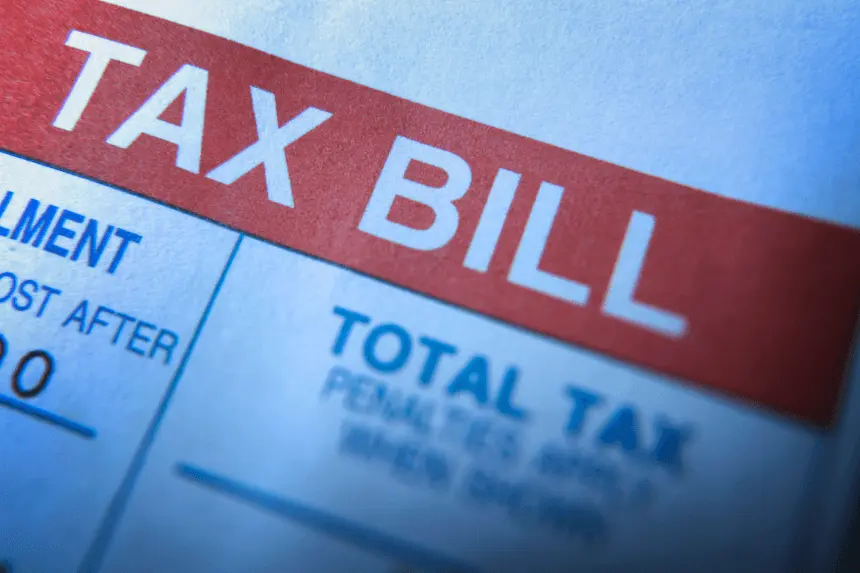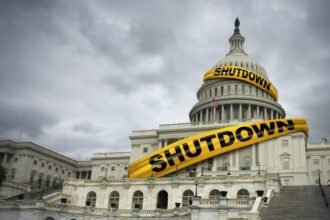A broad tax bill that may very well become the main legacy of Donald Trump in his second term is being pushed through Congress in full sight and light. Although the republicans sit in the majority in the House and Senate, the internal discord has made the process of legislation difficult. The bill, which was signed earlier this week by the Senate, is awaiting a final vote in the House of Representatives. It contains major expansions of the 2017 tax cuts, increases in defense and border security allocations,n,s and controversial cuts in Medicaid.
- What do Democrats and Republicans differ on in the Bill?
- What are the Fiscal Concerns raised by the Bill?
- What is the Function of Medicaid in the discussion?
- How Will Proposed Cuts to Healthcare and Food Subsidies Impact Vulnerable Americans?
- What of the capping of SALT Deduction?
- What has Trump attempted to do to influence the Vote?
- What is the Response of Democrats?
- When Is the Final Vote?
- What happens in the Case of the Failure of the Bill?
- Final Thoughts
This policy has become the key to the new economic vision of Trump. He has required the bill to be on his desk by Friday and has posted on his social media pages and made personal pleas for party unity. Nonetheless, there has been some stalling in-house opposition among the GOP.
What do Democrats and Republicans differ on in the Bill?
In spite of the cohesive front that the party is looking to put across, we have seen the Trump tax bill start a raging debate between the Republican lawmakers. Some of its parts are being opposed by a number of groups, including deficit hawks and healthcare lobbyists. The critics argued that the act might skyrocket the levels of deficit in the country and eliminate medical insurance for poor Americans.
The Congressional Budget Office (CBO) reports that the version approved by the Senate would increase the national deficit to $3.3 trillion within the next decade. This forecast caused unrest among the House Freedom Caucus, who consider financial restraint a pillar of conservative politics. Here is the link to our article on the US Stock Market
What are the Fiscal Concerns raised by the Bill?
The loudest critics have been those electronic devices enabled Republican members of the House Freedom Caucus. They voice out their objections to the financial impact of the Trump tax bill in the long run. Their main priority lies in the reduction of the deficit. Members such as Chip Roy, Texas, and Andy Harris, Tennessee, have even jumped on board and come out against the bill, citing the fact that they now agree with fiscal watchdogs who cry unsustainable debt.
The bill has also been criticised by conservative billionaire and a former Trump advisor, Elon Musk, who accused it of increasing the deficit, which amounts to destabilizing the economy. Such voices have added more demand to redo or deny the Senate version of the legislation.
What is the Function of Medicaid in the discussion?
One of the other most controversial ideas is Medicaid cuts. Republicans belonging to lower-income districts are afraid that such cuts will be detrimental to their base. Most people claim that this might result in political payback in the 2026 elections.
Congressman Valadao of California, David Valadao, was opposed to it by saying that he would never vote for a bill that risks eliminating Medicaid. The CBO estimates that amendments made to the Senate version may lead to one in every 12 million persons being covered uninsured by the year 2034. The figure is a bit higher than that of the original House version, which estimated 11 million. Here is the link to our article on Hollywood Film Tariffs
How Will Proposed Cuts to Healthcare and Food Subsidies Impact Vulnerable Americans?
Besides Medicaid, there are also suggestions in the bill to cut down on the food subsidy programs and the Affordable Care Act (Obamacare). These cuts were strengthened by the actions of the Senate through their amendments, which created more concern. Opponents are worried that such modifications might cripple the healthcare structure of the Americans. The argument is at an emotional level, particularly to the lawmakers representing districts that have high poverty levels. Although a few Republicans are not afraid of making some compromises to see that the bill goes through, others are determined that social programs are not open to discussion.
What of the capping of SALT Deduction?
The bill once again returns to the cap on the state and local tax (SALT) deduction, which has become controversial. It is now pegged at 10,000USD, but both houses voted to raise it to 40,000USD. Nevertheless, the Senate version repeats the cap following five years. This is a provision that is especially unpopular with highly taxed state House Republicans.
They are afraid that reinstating the cap will affect their constituents negatively, and they might end up losing their votes in future elections. This is not the most visible aspect as Medicaid or deficit spending, however, it might carry the critical votes.
What has Trump attempted to do to influence the Vote?
President Trump has been urgently promoting unity, meeting, and holding an appeal on social media with Republican holdouts. He asked legislators to pass the Trump tax bill and claimed that the party is united to bring massive growth.
Some lawmakers are yet to be convinced despite his role. Representative Ralph Norman of South Carolina also made an appearance in one of the meetings, but remained in opposition.
What is the Response of Democrats?
Democrats have highly criticised the Trump tax bill, citing its consequences on health services, social amenities, and the national economy. Even the House Democratic leader, Hakeem Jeffries, symbolically tweeted a photo of him wielding a baseball bat, pledging to maintain the heat on the Trump One Big Ugly Bill.
Democrats are trying to defy the bill with the help of the masses, even though they are not in a position to stop the bill completely. They are praying that the legislation will be stalled or stop altogether by the schisms in the GOP itself.
When Is the Final Vote?
The bill will likely be voted on in the House before the Friday deadline. The procedural vote was supported later on Thursday morning following a long debate. In case it is signed, it will be forwarded to President Trump to sign.
Marathon sessions have already been initiated in the two chambers, with overnight deliberation already going on during the legislative process. Here, one marked the urgency of the law, its divisiveness.
What happens in the Case of the Failure of the Bill?
The inability to pass the bill may greatly inhibit the Trump legislative plan. It would also reveal rifts inside the republican party, making it very difficult to pass bold laws in the future.
To Trump, this bill is not just a monetary plan. It is one of the legacy indicators of his 2nd term. Thus, there are high political and practical interests involved.
Final Thoughts
Even as the final vote nears, the Trump tax bill continues to be a scandalous step under the spotlight. This is a very influential bill, with enormous consequences on healthcare, national expenditure, and party cohesiveness, and with considerable implications on the books of the decade. Whatever the outcome may be, its impact will be felt in the halls of Congress as well as that which goes homes to the millions ofAmericas.








